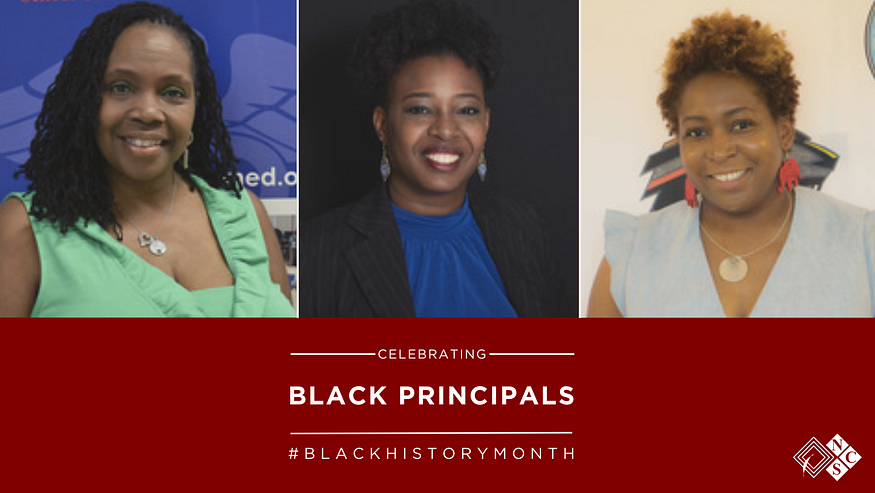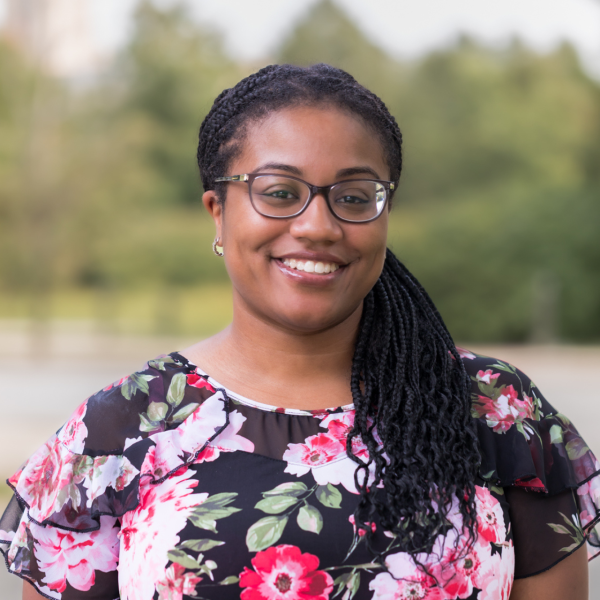Published on Feb 28, 2023
The author of this blog, Kayla Brown, is the Development and Communications Manager with the Network for College Success (NCS). She is responsible for supporting fundraising activities and drafting informational and marketing materials. In her spare time, she enjoys reading historical fiction novels and writing poetry.
My maternal grandfather was a principal serving St. Louis public schools for decades. He was well known for his authoritative persona and passion for Black children succeeding in school. He could be stern at times, but he cared about his students and wanted them to do well. Years after my grandfather retired, old students from his school would recognize him and address him with the same respect and awe that they held for him when they were children. It was these interactions that taught me how much impact a principal has on the people they touched.
Principals are the change agents of their schools. A principal’s leadership determines whether equitable learning communities can thrive within their schools.
The UChicago Network for College Success (NCS) partners with high schools and helps build capacity for principals to cultivate effective leadership that is anti-racist, promotes college-going cultures, and honors the brilliance and unique experiences of every child.
In order to ensure every student is successful, we focus our efforts towards least-served student populations that have historically been harmed and misrepresented by outdated educational systems. Per our Equity Stance, “We collectively operate from a moral imperative to pay the educational debt to Black and Latinx communities.”
In order to promote anti-racism and cultural fluency in high schools, we need high school leaders who are invested and committed to this type of work. As this year’s Black History Month comes to a close, we want to highlight insights from Black principals that we are proud to be partners with.
Their Racial Identity Carries Weight
Dr. Andrea Johnson (Assistant Principal, Kenwood Academy High School)
As stated by NCS facilitators during last summer’s EBL workshop: “race is the strongest predictor of how you experience [the United States].” According to a research study by the Pew Research Center, the majority of Black Americans see their Blackness as being extremely or very important to how they think about themselves. Furthermore, Black Americans who feel this way feel emotionally connected to other Black people and what happens to their peers affects their own lives. Our Black partner principals echo these findings:
-
“Inherently as a Black person navigating life, there is a constant awareness of the possibility of being treated differently because of my race or needing to question if cultural differences play a part in my or other’s perception of a situation.”
-
“Being a Black administrator adds a layer of awareness of the depth of how the pandemic has affected the Black community and how current decisions and visions for the future need to address the needs of a traumatized community and traumatized world.”
-
“One of the things I am most proud of is my heritage, people and culture! I believe that Black people are the most resilient, strong, creative, intelligent and beautiful group of individuals on Earth! My Motto is Unashamedly Black and Unapologetically Beautiful!”
NCS encourages examining the skin you’re in and this especially includes race. For adults working with children, it’s crucial to examine their experiences and identities because these components come to the surface in how they show up in schools. Black principals and educators who are serving Black children take this responsibility seriously. Black professionals in schools can prioritize education and appreciation around Black identity, which is crucial for Black children as they develop and grow.
Black Principals are Connected with Students
-
“The students motivate me to do my job. I look at them and see myself.”
-
“Our students are awesome! They are working hard in school and in the community.”
-
“I absolutely love to see how children grow and expand throughout their high school career and beyond. I have had the opportunity to see probably thousands of students graduate from both elementary and high school and move on with their lives and become young adults with families of their own and place their mark on this world.”
Student-centered learning is the route to positive change and academic success.
Research tells us that when adults listen to students’ wants and needs, they can use that information (student voice data) to create learning environments that produce positive school experiences. Since SY21, NCS has prioritized the collection of student voice data in order to support historically underserved students. Black principals are leaders that want to take up this work and connect with their students. Especially since Black principals have an easier time relating to their Black students through their racial and cultural identities. In turn, Black students are able to see Black adults in leadership roles work with them to improve their school experience.
One of our Black partner principals shares this story about connecting with students and how it helped them learn:
-
“I was sitting in my Chemistry class and I realized that my students were not connecting with the curriculum. They didn’t see the importance of learning the study of matter. They didn’t share my love of science, and the prescribed curriculum was unrelatable. Chemistry was not tangible, so I decided to create a unit called the Chemistry of Soul Food. We made black-eye peas and learned dimensional analysis at the same time. It was this moment that put me on a leadership path. I felt that it was important that students see themselves in the curriculum and understand the real-world connections to their classroom work.”
Angela D. Newton (Assistant Principal, Englewood STEM High School)
While working in schools, principals and educators become connected to their students on a deeper level beyond the classroom. We heard our Black principals voice the challenges that come with being in a role where they are invested in the lives of the youth they serve:
-
“I have experienced many of my students being killed due to gun violence. This has been one of my greatest challenges. I was attending so many funerals at one point in my career that I did not want to continue to do this work. But God spoke to my heart to help me realize that there were many more students that brought me joy than sadness. I am also saddened when I have a student that drops out of school and does not realize their own potential and possibilities. For me, this is very disheartening. I also believe that many of the predominantly Black schools are underfunded and can not offer many of the amenities and programs as predominantly White schools.”
Black Principals Want Change for their Schools
-
“I have always wanted to be a part of “making things better” for people and I knew I wanted to be a teacher since I was in kindergarten….As I continue on my journey in education I will strive to find ways that I can “make things better” for my teachers and students.”
Black Principals not only want change, but their presence in schools promotes it. Research shows that “schools with more Black principals have higher percentages of Black teachers, increased student performance and increased enrollment of Black students in gifted programs.” Furthermore, Black principals increase the likeliness of more Black teachers being hired and less Black teachers quitting. Although these results would make it sensible to recruit more Black principals and principals of color in all of our schools, this is not the current story. In American public schools, the majority of students are from communities of color while the majority of principals are white. This fact is not lost on our Black partner principals:
-
“Nationwide there are only 10% of Principals who are black. In CPS, 44% of the 504 Principals are Black. However, only 20.8% of the 22,575 teachers in CPS are Black. I believe there is a need for more Black teachers in education, because decades of research have shown that Black teachers have a positive influence on Black students. In education, there is a need to recruit and retain more Black teachers. Eventually more Black teachers will lead to more Black Principals that will have a positive effect on school communities.”
“I have been in meetings where I am the only one at the table that looks like me, and that’s hard when I am a reflection of at least 36% of the CPS population; representation matters.”
There is still much work to be done in our schools and we need our Black leaders to support these efforts. Especially if we want to see our underserved students receive the attention and support they need to be successful in school. How can we ensure that their needs will be met if they don’t even see people that look like them in their school communities?
-
“Being a Black person in a position of power ensures that there is more than 1 voice at the table.”
Leonetta Sanders (Principal, Daniel H. Williams Preparatory)
Black educators have the power to inspire, heal, and educate the younger generation. They are leaders of equity and change in our schools. While hearing from them is important to reaching new understandings, it means nothing if we do not act.
Educators, particularly Black educators, play a vital role in shaping the future of our youth. Consider supporting Black educators by attending their events, advocating for their hiring, and recognizing their contributions. Additionally, you can help spread the word about the insights and experiences of Black principals in Chicago by sharing this blog with your community and network. Finally, as one of our Black partner principals would say, teach/learn Black history not just for a month, but all year round:
-
“As a Black Principal, I continue to ensure that our children learn our history 365 days, not just 28 days in February. I believe that if we don’t teach them our history, who will? I believe it is the responsibility of every Black Principal to ensure that our children of every race, religious background, creed and color know the continued contributions of Black people past and present. There is such a rich history and the stories need to be told.”
Special thanks to these principals and assistant principals for sharing their stories:
-
Dr. Andrea Johnson (Kenwood Academy)
-
Angela D. Newton (Englewood STEM)
-
Leonetta Sanders (Daniel H. Williams Preparatory)

